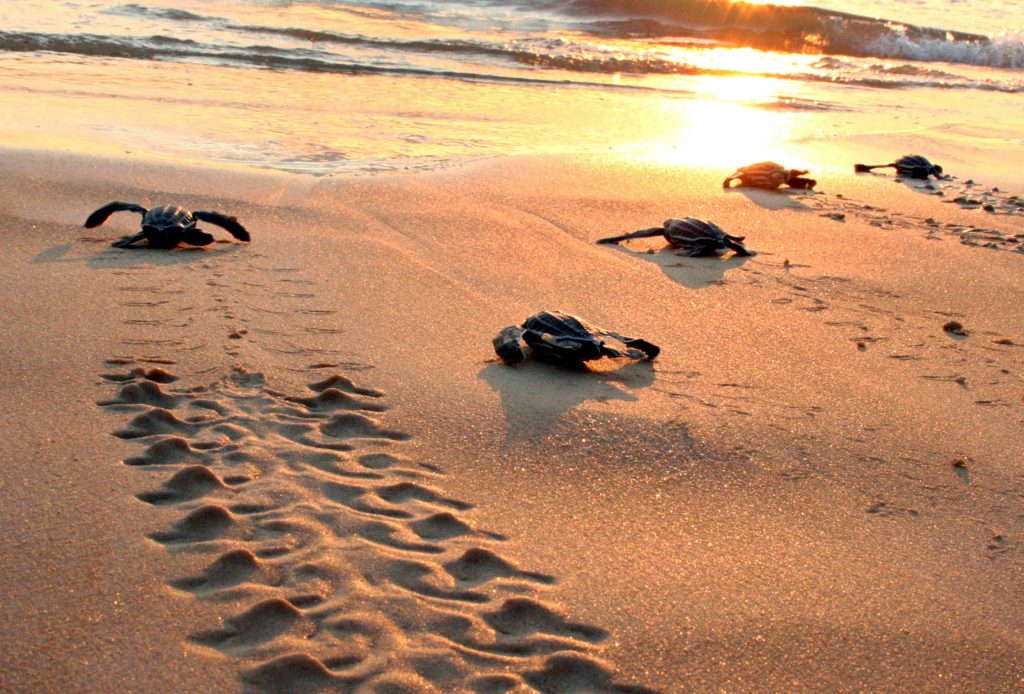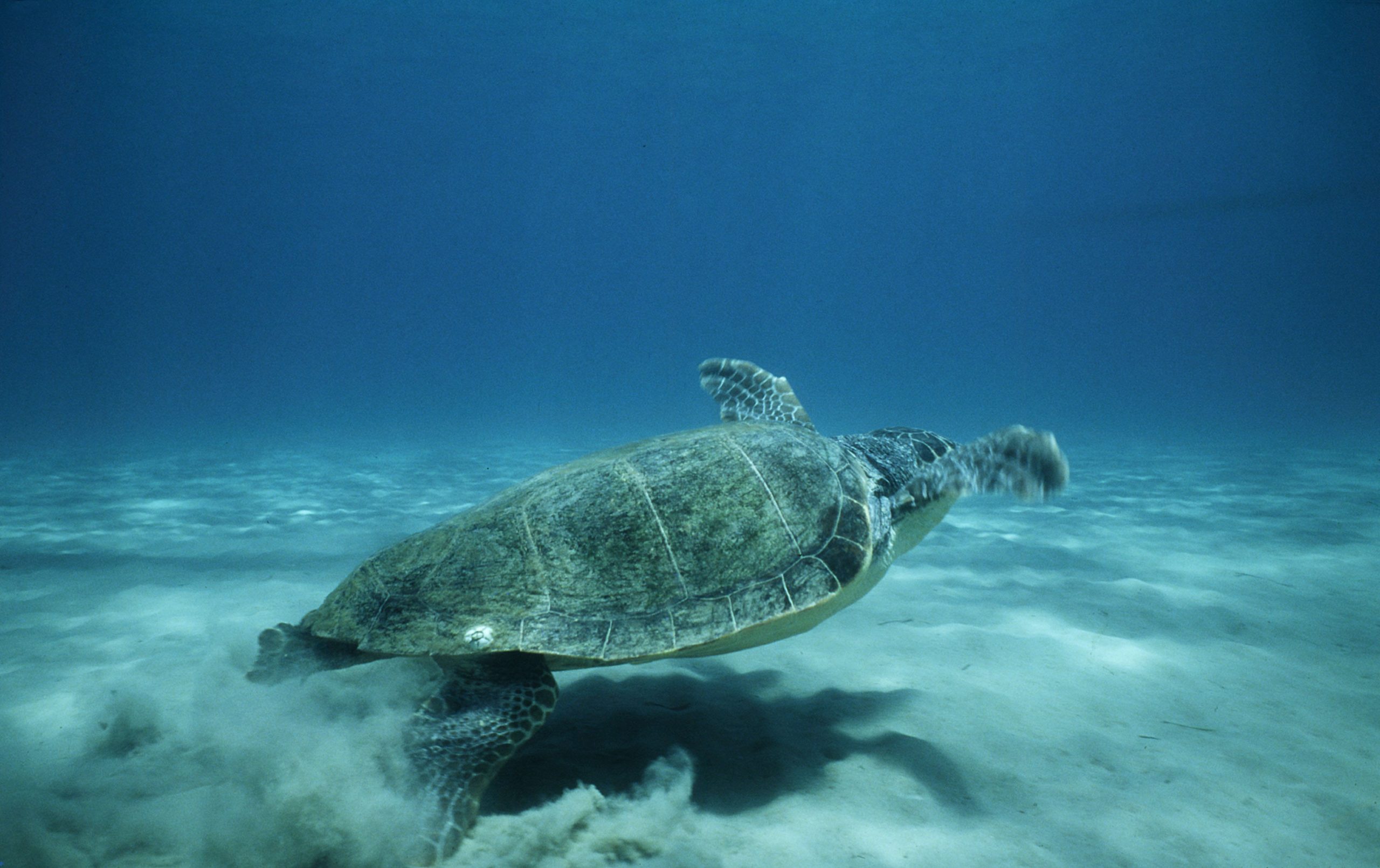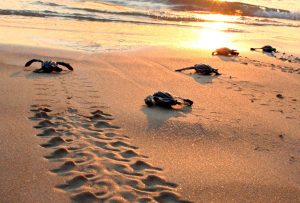A joint report released by nine Greek environmental organizations today alleges that the Greek government is not managing its Marine Protected Areas adequately.
Designated Marine Protected Areas range over 22,000 km square kilometers in the seas surrounding Greece, covering 18.3% of Greek territorial waters.
But few of these Marine Protected Areas have an actual protective regime. The report states that only 12 out of 174 marine Natura 2000 sites, which are recognized as protected areas in Greece, have legislation that enforces and specifies their protection.
In Greece, the protected designation of such an area is dictated through presidential or ministerial decree. For an area to be covered in such a decree, it must first be researched with an environmental study– one that identifies the species or ecosystems that require protection, how human activity interacts with these species or ecosystems, and how these activities can or cannot be incorporated into the protected area. A decree is then issued that dictates what protection is needed, and what activities are permitted. In Marine Protected Areas these specifications can include the regulation of fishing activities, building regulations, or other measures.
In Greece, only the National Marine Park of Zakynthos, the National Park of Schinias-Marathonas, the Kyparissiakos Bay, and the Psalidi beach at Kos island have legally-established conservation measures through presidential decree. Many sites have ministerial decrees but these do not necessarily apply in perpetuity. The rest of the Natura 2000 sites, designated as such on an EU level, are what are called “paper” Marine Protected Areas in Greece meaning they are only protected in name.
The report– signed by WWF Greece, Green Peace, the Sea Turtle Protection Society of Greece, and the Cyclades Preservation Fund among others– also highlights a 2020 ruling by the EU Court of Justice, which determined that Greece had breached its obligations by not setting appropriate conservation measures within the required timeframe for sites which had been designated as Natura 2000 areas prior to 2017. Essentially Greece was found in violation of its obligation to protect areas the EU had identified as in need of protection.
At the 2021 International Union for Conservation of Nature World Conservation Congress, Prime Minister Kyriakos Mitsotakis committed to meet these obligations: “We must work, also together with the [EU] Commission, to ensure that marine protected areas or MPAs are no longer paper-parks,” he stated. “I personally commit that the protection designation status of all Natura 2000 sites will be completed by the end of 2022, through a fully transparent and inclusive process.”
Yet the protection designation status of these sites remains uncodified. The environmental organizations stated: “While the relevant studies have been commissioned ever since 2019, the Ministry of Environment and Energy in charge, has not proceeded with their approval and the issuance of the relevant decrees.”
Demetres Karavellas CEO at WWF Greece, identifies the delay in implementing these legally-established conservation measures as a lack of political will. “Yes Marine Protected Areas do put in place some rules, and that may carry a short-term political cost,” Karavellas said to To Vima International Edition. “If a ministry needs to take some tough measures in one particular area in order to protect a species, then they tend to shy away from that and just buy more time and just delay the entire process. But that is really at the end of the day is detrimental to everyone. It’s detrimental to nature, to the people living in that area because they don’t know exactly what’s happening, it’s detrimental to investors who don’t have the clarity around the rules.”
This April the Greek government made several promises to advance the protection of its seas– including banning all bottom trawling in all Marine Protected Areas by 2030, the establishment this year of two additional marine national parks, the establishment of a scientific monitoring system for all Marine Protected Areas, and the rehabilitation of some marine habitats by increasing the level of protection in Marine Protected Areas.
The environmental organization stated that “These commitments are deemed positive, but effective management and tangible action are the key challenges.”
In regards to management, the environmental organizations allege that Greece’s newly-formed Natural Environment and Climate Change Agency, which was established in 2020, remains seriously understaffed, that there is inadequate coordination between the agency and relevant ministries, and that the agency finds itself operating ad hoc due to ambiguity in institutional purviews.
“NECCA being established was an important step forward,” stated Karavelles, “But NECCA is there also to coordinate, implement, and watch over the management of protected areas generally, and marine protected areas specifically. How can they do that when the status is not in place? How can they do that when they don’t know what is allowed and what is not allowed?”
The Natural Environment and Climate Change Agency was asked for comment on these allegations and did not respond by the time of publishing.
Karavelles argued that the proper protective status of Marine Protected Areas would not take long, and would solve several problems simultaneously. “It’s a shame for the economy, it’s a shame for nature,” he said. “We can do much better.”





